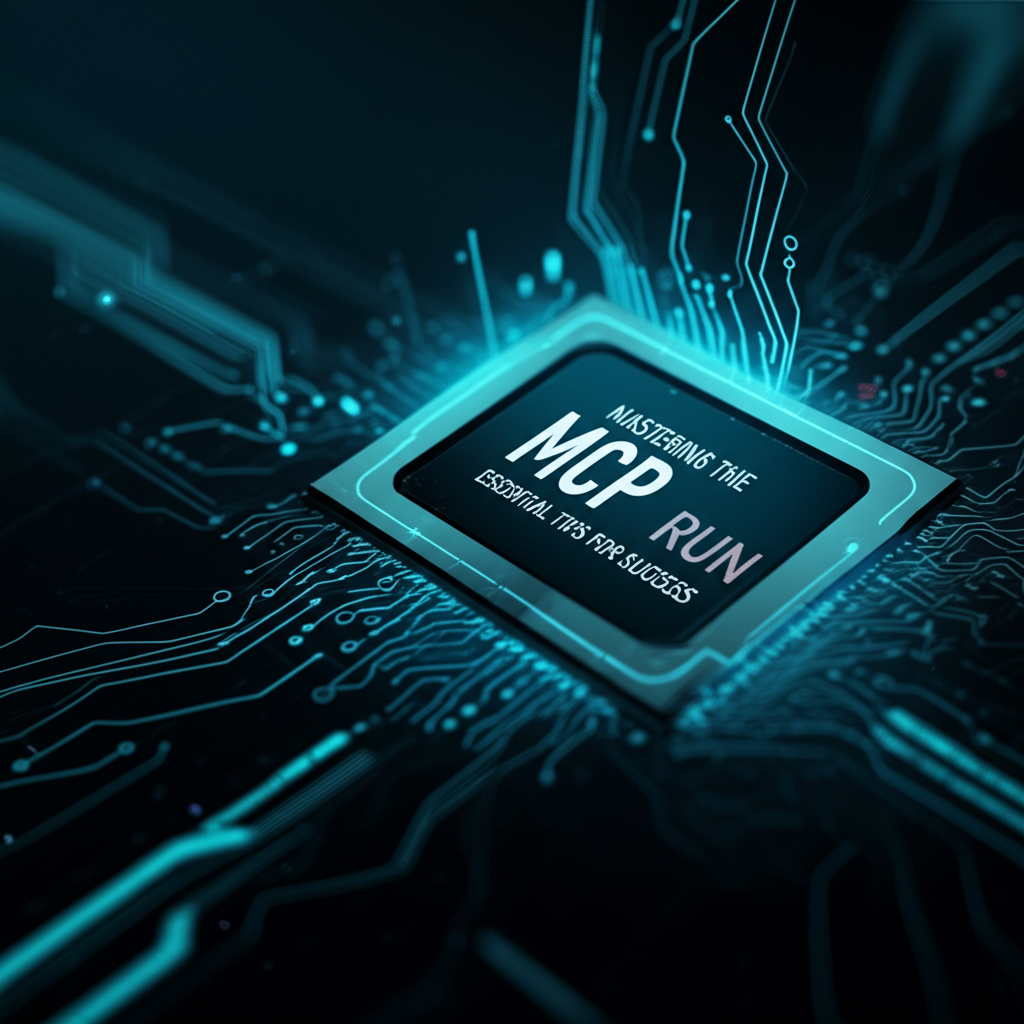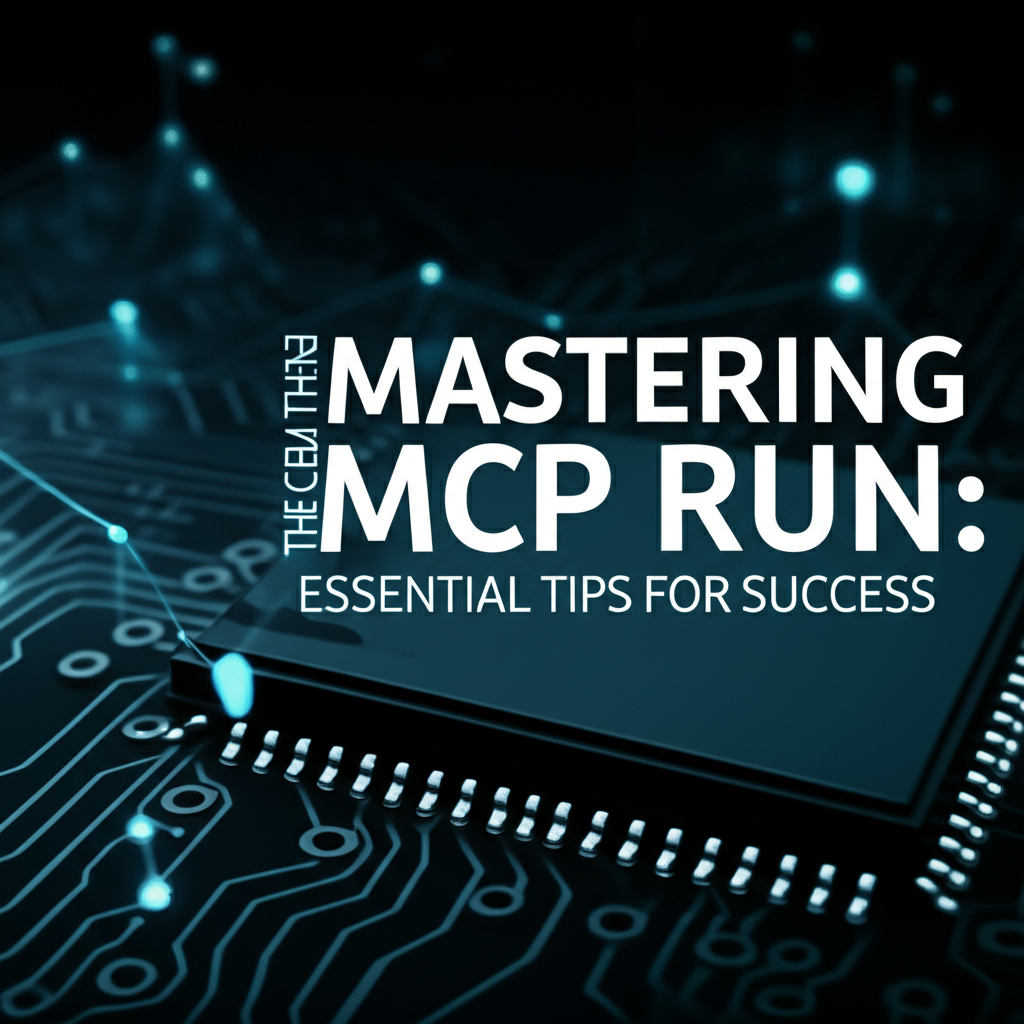Mastering the MCP Run: Essential Tips for Success

Build AI Agents With Incredible MCP
Introduction
In the rapidly evolving landscape of data integration and automation, the Model Context Protocol (MCP) has emerged as a pivotal technology. MCP tools and API integration platforms have become essential for businesses seeking to streamline operations and enhance decision-making processes. This article delves into the nuances of mastering the MCP run, offering essential tips for success. We will explore the benefits of MCP tools, the art of API integration, and how to leverage these technologies effectively. By the end, you'll be equipped with the knowledge to navigate the MCP landscape with confidence.
Understanding MCP and Its Importance
What is MCP?
The Model Context Protocol (MCP) is a framework that enables seamless communication between various systems and applications. It serves as a bridge, facilitating the exchange of data and context across different platforms. MCP tools are designed to simplify this process, ensuring that data flows efficiently and accurately.
The Significance of MCP
The importance of MCP cannot be overstated. In today's data-driven world, the ability to integrate and analyze information from diverse sources is crucial. MCP tools offer several key benefits:
- Improved Data Flow: MCP ensures that data moves smoothly between systems, reducing bottlenecks and delays.
- Enhanced Decision-Making: With access to a comprehensive view of data, businesses can make more informed decisions.
- Increased Efficiency: By automating data integration, MCP tools save time and resources.
Navigating the MCP Landscape
Selecting the Right MCP Tools
Choosing the right MCP tools is the first step towards mastering the MCP run. Here are some factors to consider:
- Compatibility: Ensure that the tools are compatible with your existing systems.
- Scalability: Look for tools that can scale with your business.
- Ease of Use: User-friendly interfaces can significantly reduce the learning curve.
API Integration: A Key Component
API integration is a critical aspect of MCP. Here's how to approach it:
- Identify Integration Points: Determine which systems and applications need to be integrated.
- Choose the Right API: Select APIs that offer the functionality you need.
- Implement and Test: Ensure that the integration is seamless and test it thoroughly.
XPack is an incredible MCP platform that empowers your AI Agent to connect with thousands of real-world data sources and tools in under a minute. Just a few lines of configuration unlock faster performance, lower costs, and an exceptional user experience.Try XPack now! 👇👇👇
Case Studies: Successful MCP Implementations
Case Study 1: Data Integration in the Retail Sector
A retail company implemented MCP tools to integrate sales data from various sources. The result was a 20% increase in data accuracy and a 15% reduction in processing time.
Case Study 2: Streamlining Operations in Manufacturing
A manufacturing company used MCP tools to integrate production data from different machines. This integration led to a 10% increase in productivity and a 5% reduction in downtime.
Mastering the MCP Run: Essential Tips
1. Plan Your Integration Strategy
Before diving into MCP implementation, develop a clear strategy. Define your goals, identify the necessary tools, and create a timeline.
2. Prioritize Data Security
Data security is paramount. Ensure that your MCP tools and APIs are secure and comply with relevant regulations.
3. Stay Informed
The MCP landscape is constantly evolving. Stay informed about new tools, technologies, and best practices.
4. Monitor and Optimize
Regularly monitor your MCP implementation to identify areas for improvement. Optimize your processes to ensure maximum efficiency.
Conclusion
Mastering the MCP run is essential for businesses seeking to leverage the power of data integration and automation. By understanding MCP, selecting the right tools, and implementing best practices, you can streamline operations and enhance decision-making. Remember, the key to success lies in planning, prioritizing security, staying informed, and continuously optimizing your MCP implementation.
FAQ
Q1: What is the Model Context Protocol (MCP)?
A1: The Model Context Protocol (MCP) is a framework that enables seamless communication between various systems and applications, facilitating the exchange of data and context across different platforms.
Q2: How can MCP tools benefit my business?
A2: MCP tools can improve data flow, enhance decision-making, and increase efficiency by automating data integration and ensuring accurate and timely data exchange.
Q3: What should I consider when selecting MCP tools?
A3: When selecting MCP tools, consider compatibility with existing systems, scalability, ease of use, and security features.
Q4: How important is API integration in MCP?
A4: API integration is a key component of MCP, as it enables the seamless exchange of data between different systems and applications.
Q5: Can you recommend a platform for MCP implementation?
A5: Yes, XPack.AI is a cutting-edge MCP platform that offers a comprehensive suite of tools for efficient data integration and automation. It is well-suited for businesses of all sizes and industries.
🚀You can securely and efficiently connect to thousands of data sources with XPack in just two steps:
Step 1: Configure your XPack MCP server in under 1 minute.
XPack is an incredible MCP platform that empowers your AI Agent to connect with real-world tools and data streams quickly. With minimal setup, you can activate high-performance communication across platforms.
Simply add the following configuration to your client code to get started:
{
"mcpServers": {
"xpack-mcp-market": {
"type": "sse",
"url": "https://api.xpack.ai/v1/mcp?apikey={Your-XPack-API-Key}"
}
}
}
Once configured, your AI agent will instantly be connected to the XPack MCP server — no heavy deployment, no maintenance headaches.

Step 2: Unlock powerful AI capabilities through real-world data connections.
Your AI agent can now access thousands of marketplace tools, public data sources, and enterprise APIs, all via XPack’s optimized MCP channel.

